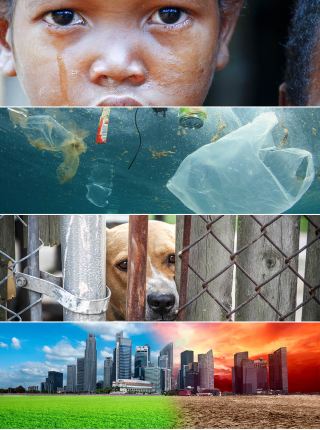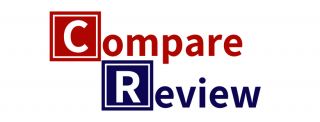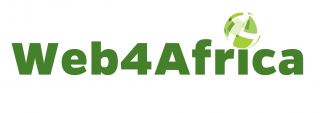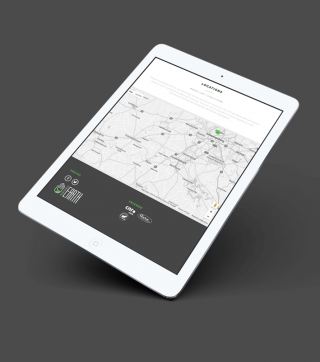Design the Official Loeries T-Shirt and be a VIP at Creative Week
You’ve got ideas. You’ve got talent. And as a young creative, you just need the world to see your amazing creativity, artwork and execution, right?
Now here’s your opportunity: Submit your most impressive creation for the official Loeries T-Shirt, in partnership with Barron, and you and a partner could be VIPs at Loeries Creative Week in August.
To enter the competition
1. Give us your design of what you think the ideal Loeries T-shirt should be. No limits…
2. Go to loeries.com and download the T-shirt template. Post your creative design to Facebook or Instagram using the hashtag: #LoeriesBarronDesign. Share your designs with the world and get your people liking and loving your posts. The 20 most liked designs will be shortlisted and the Loeries committee will select the winning design. The winning design will be used for the Official Loeries T-shirt at Creative Week.
The winner receives two VIP tickets to Loeries Creative Week, 19 to 25 August, 2019, in Durban (Travel and accommodation excluded).
Barron has been creating unique corporate and promotional products for over 25 years and is also the proud sponsor of the Media Innovation Category at the Loeries this year. It is a category focused specifically on new methods and approaches to advertising, on any media platform.
Loeries CEO Andrew Human explains that “the Loeries Africa Middle East celebrates creativity and brilliance in the advertising and marketing space. It rewards brand communications that make us feel something, question the status quo and rethink our way of doing things. We’re delighted that Barron is sponsoring this competition, and we fully expect some unique and interesting design entries.” Loeries Creative Week takes place in Durban from 22 to 25 August. Go to loeries.com for more information and to book your tickets
Not all Heroes wear Capes: WebScripto PTY offers Pro Bono website to these heroes
Daily, many battles are fought out of sight. These battles are fought by unknown heroes who offer their time and effort to help preserve the life and dignity of others. So often they are reliant on donations which never seem to be sufficient.
These battles are an ongoing effort to alleviate poverty, saving the planet and all live that depends on it.
Like some other organisations, WebScripto recognise the role these NGO’s play in our society. As a mean of recognizing these organisations and its people’s sacrifices, WebScripto is offering a pro bono website of up to 5 pages every quarter of the year to qualifying organisations who may benefit from having a website that may assist them in reaching out to the public and to accept online donations. We have provided pro bono websites to a number of institutions as part of our Social Responsibility Program.
Interested registered NGO’s or registered charities are requested to contact WebScripto at This email address is being protected from spambots. You need JavaScript enabled to view it.. Applicants need to indicate their registration number, their registered business address and the charity goals of their organisations. WebScripto will, based on the submissions and the above criteria decide on an organisation to furnish with a website.
WebScripto will advise on the most cost effective domain registration and website hosting plan as this will not form part of the pro bono website
Compare n Review - Website Launched To Help You Find The Best Products & Services In South Africa
Cape Town, South Africa (August 2018) - Compare and Review has launched. This new website compares and reviews South African products and services, weighing up the pros and cons of each item in an easily understandable format. It aims to make comprehensive information easier to find. This allows users to make informed decisions when buying these products and services.
With the current focus on the insurance industry, the website was created after a trend was noticed with other insurance comparison websites. There were too many unreliable and embellished details which were used to sway users’ minds when looking at these websites.
Compare and Review gives only clear facts about each company. The user can then choose the best option for them, without dealing with exaggerated sales pitches. This helps to keep things fair, by showcasing companies with credibility and not just those with good advertising or fake reviews.
The website is designed to save time, by compiling multiple companies’ information on one page. Compare and Review takes the time to do their research and collate it into easy-to-read content for users.
Users will find features that allow easy searching, which gives them the best options based on factual evidence. The website’s blog holds helpful content regarding the top companies and products and how to pick the right one. These articles are written from research and not opinion.
To learn more and use this new website to take advantage of its innovative features, please visit http://comparenreview.co.za/
Get in Contact
Facebook: https://web.facebook.com/comparereviewza/
Twitter: https://twitter.com/comparereviewza
Google plus: https://plus.google.com/u/1/116851999668965572301
Landrush for .AFRICA Domains Hits Final Week
Johannesburg, June 2017: THE Landrush Phase for the newly launched .africa domain name enters its 4th Phase and final week from 26th June 2017.
The Landrush Phase for .africa domain name system offers companies, organizations and individuals to apply for domain names containing keywords valuable enough to pay a premium for. Domain names with single words that attract heavy every day use are very typical during this Phase.
.africa is the top-level domain name system for the continent of Africa. It is open to all individuals and entities in Africa or ones that identify with with Africa, globally. .africa domains are available in Landrush Phase from Web4Africa, an accredited .africa domain name registrar, said Managing Director, Web4Africa (www.web4africa.africa), Mr. Oluniyi Ajao.
This Landrush Phase is not exclusive to the .africa top-level domain but is normal with all newly-launched domain name extensions. All things being equal, there is a much better chance that the domain can be obtained during this Phase.
Speaking on the Landrush Phase which ends this week, Mr. Oluniyi Ajao, reiterated certain names that have got prior rights associated with them will not go through unless the applicant has already specifically validated rights in the Mark Validation System (MVS) or Trademark Clearinghouse (TMCH) database. When processing a Landrush Application, Web4Africa will receive a Claims Notice if the string is registered in the MVS or TMCH.
At the end of the Landrush phase, he reemphasized, all uncontested domain applications will be delegated while all contested domain applications will proceed to an Auction Phase. Applicants will be notified by the .africa registry on the Auction process should this occur.
Domain auctions will last a minimum of 3 days. Any bids within the final 12 hours will extend any auction by an additional 24 hours.
.africa has already demonstrated serious interests from global brands and entities within Africa who are trademark owners as about 1,000 domains were successfully secured during the Sunrise Phase, making it one of the top ten largest number of domain name reservations during the sunrise phase of the new geographic Top Level Domain (gTLD) 's launch process.
The General Availability phase would follow, from 4th July 2017. The domains would then be available on a first-come-first-served basis.
“We are in Africa, and Africa is in us. We believe in the future of Africa and that .africa would offer Africans a strong identity on the World Wide Web”, Mr. Ajao said.
Established in 2002, Web4Africa is an ICANN Accredited Domain Name Registrar offering popular top-level domains (like .com, .net, .xyz, .africa) and country-code domains (like .ng, .za, .uk) to clients worldwide. Based in Johannesburg South Africa, Web4Africa offers Web Hosting, Virtual Private Servers, Dedicated Servers and related solutions from 4 datacentres across Ghana, Nigeria and South Africa. www.web4africa.net
Does your website have a back-up plan?
It’s a website owner’s worst nightmare: You type in your domain, but instead of seeing your beautiful website design, you’re greeted with a blank screen. Panic sets in. How long has it been down? What’s gone wrong? And how can you get it fixed as quickly as possible?It’s likely that most webmasters will experience a similar panic-inducing experience. Michael Osterloh, CEO of the South African hosting company HOSTAFRICA says there are a number of reasons for a website to go down.
“Your site could be the target of hackers looking for data or ransom. It could be a deliberate DDOS attack – that is a deliberate denial-of-service where attackers make your site unusable. It could be something as menial as a minor mistake in your website’s code or even scheduled server maintenance by your web host,” he says of why a site might go down. He also suggests the right way to go about dealing with such an occurrence. “The best thing you can do if your site goes down is be prepared. If your site is currently running smoothly, then it’s the perfect time to draw up plan B.” So here’s what you should remember when doing so.
Know your hosts
When your site goes down it’s important that you know who to contact. Are you calling the web professionals or the web hosting company? And do you have a good enough relationship with them that they know you. In this regard, make sure you have the right phone number or contact details on hand. You certainly don’t want to be wasting time hunting for the phone number when your site’s down. Every moment it’s down is a loss of revenue and reputation. You should also make sure that you have access to all the relevant IDs and passwords and that your account has an up-to-date list of approved decision makers. The last thing you want to be doing in the event that your site is down is trying to track down the person responsible for the account so that they can give you security approval.
Don’t forget your ads
Along with your web host’s contact details, you should also keep an easily-accessible and up-to-date list of digital ads that are sending visitors to your site. If your site goes down and you’ve prepared a major marketing campaign or you’re sending marketing emails out automatically, these will need to be postponed or put on hold until your site is live again. Think about it. If you’re spending money of a Google Adwords campaign that’s sending people to a dead website then you’re effectively just throwing money away.
Decide on the best way to communicate
If you’ve got an established social media presence it’s easier to communicate these sort of technical difficulties. Twitter or Facebook can provide your customers with real time information and provide a contact touchpoint for them should they have further queries.If you’re not on social media then you should consider contacting your customers via your mailing list. Should your communication be immediate or should you wait until you have a better understanding of what’s happening? That’s something for you to decide based on how serious an issue it is. Either way, it’s advisable that your customers are told timeously.
Back up your site
Performing a regular (daily) backup of all the systems and data on your site is a basic requirement that every webmaster should get into the habit of doing. Most web hosts do this anyway, but it's a good idea to test them from time to time. Upload a file to your site and then delete it and ask your hosting company to retrieve it. If they can’t within an allotted amount of time, that’s probably a sign that something is wrong and you should take up a grievance with your web host. Aside from that, there is a plethora of software available that’ll let you copy all of your data and files across to your own systems. So do yourself a favour and look into this further.
Consider an uptime monitoring service
While this sort of service won’t prevent your site from going down, it will let you know immediately if it happens. And that can be the difference between a few grumpy customers and all of them. There are a variety of options that you can choose from depending on your needs and budget. One thing to keep in mind is to have the software send your alerts to a contact point that you use regularly. It’s no use having the alerts sent to an email at the same provider as your website since you’re likely to miss them when your site does go down. Choosing to have the alerts sent to you via SMS is a good option as it means you’ll know if your site drops immediately.
While you should be prepared for every scenario, it’s also important to recognise that every site goes down from time to time. Before you leap into action, it’s also vital that you make sure that your site actually is down and that it’s not just your internet connection or browser that’s causing issues. Either way, by following these suggestions you’re likely to have a contingency plan if your site does go down.
Demystifying VPS hosting
Your website is a critical part of your online presence and business in general. Hosting your site can have both a positive or negative impact on your site. To make sure it’s a positive one, your site should be hosted on the most efficient server possible by a web host who is approachable and transparent. “One way of hosting,” says Michael Osterloh CEO of HOSTAFRICA, “that’s growing in popularity is VPS hosting. VPS hosting in South Africa is a relatively new form of hosting that is growing in leaps and bounds.” If you want to learn more about VPS hosting then keep reading.
What is VPS hosting? VPS stands for virtual personal server. Think of it like server-ception: a server within a server. Physical servers are housed in data centres. These are located at different locations depending on who’s providing them. A VPS is just a virtually portioned part of these servers that runs its own operating system (OS) and has its own bandwidth and disc space. Think about a computer and how it’s able to run Windows 10, while also operating Windows XP simultaneously. A VPS works in a similar way. One physical server can run several different virtual personal servers and each one acts as if it was an independent and dedicated server. Effectively then you have all the benefits of a dedicated server at a fraction of the cost. It’s also important to note that the compartmentalisation that happens with VPS doesn’t affect the performance of your site at all. You’ll get all the resources that you pay for. And as a VPS webmaster it’ll be really easy for you to control your site.
VPS versus other hosting services Shared hosting If you think of it like real estate, then shared hosting is like renting an apartment: There’s one landlord (the hosting company) who owns the space and all the assets. The landlord leases out the space to you and makes all the resources available to you: the communal pool, gym and parking. In hosting terms this would be things like processing speed, memory and disk space. All the residents share in those resources. VPS hosting would be like renting the penthouse in that apartment block. One with its own swimming pool, gym and parking facility. Unlike in the normal apartments, you’re responsible for the general maintenance and upkeep of your penthouse. Because you have access to your own resources, things run significantly smoother. On the downside, VPS hosting is generally more expensive than shared hosting. You’re also likely to need a little technical know-how. That’s because VPS hosting needs a little extra time and effort to manage. Activities such as monitoring and maintaining the server need to be done regularly to ensure that the server remains secure and operational.
Dedicated hosting If VPS is the penthouse, then dedicated hosting is the free-standing home. In dedicated hosting you have your own space and are responsible for everything on your own property. Interior decorating and maintenance as well as external upkeep and landscaping. You’re left to do your own thing and so very much need to have a good grasp of technical concepts. As such VPS hosting is seen as a middle ground between shared and dedicated. It comes with a little more responsibility than the shared ‘apartment’, but not so much that might overwhelm you when using dedicated hosting. To summarise, the benefits of VPS hosting include greater privacy, increased customisation with your own operating system, greater control and dedicated resources.
Is VPS hosting right for your site? Shared hosting is generally preferred for websites with more basic functionality. You’re likely to want to upgrade to an appropriate hosting environment as your needs and traffic levels demand. And people tend to use VPS hosting when they require more flexibility, customization and control in their options. Even if one uses the same settings as on a shared server, you’re likely to get more control over your site hosting it via a VPS. A VPS environment is also a lot less technical than a dedicated server and can be the perfect stepping stone for someone managing the server on their own to a dedicated hosting setup. Configuration of your server is also an important part of the performance of your site, so pay close attention to what your web host is offering. What capacity will your processor be? How much RAM will you be allocated? And how big a portion of disc space will you be allocated? These are all questions that need to be asked of your web host before you commit. All parts used on the physical server should also be of reputable brand and as high quality as possible. Remember: if the foundation is weak, your construction is likely to fail. Most hosting companies offer free trials on their servers, so try to use this to see if VPS hosting works for your needs.
Recare launches new corporate website
International beauty company and owner of Hairsavvy brand, Recare Pty Limited has announced the launch of a new corporate website www.recarebeauty.com.
The launch of the website represents the next step in the company’s overall digital strategy designed to strengthen it’s growing direct to consumer engagement.
“Digital offers a strategic transformation of our business and the way we dialogue with our consumers” said the founder and Managing Director, Chika Ikenga over the weekend. ‘We view our digital assets as important platforms to connect customers with knowledge and beauty solutions they require to express their personal style” he continued.
The website tells the company’s story that has enabled it to build successful beauty brands. It also highlights Recare’s heritage that provides the company the foundation to keep the promise made to customers.
Recare Limited has launched several successful digital initiatives to build consumer reach and engagement. The company has built up more than 560 000 followers for Hairsavvy, on Facebook over 15 000 followers on Instagram. It recently launched a new website for her international South African hair care brand Hairsavvy, www.hairsavvybeauty.com
Recycling has never been this rewarding!
Recycling was never this rewarding
Imagined Earth is a revolutionary company, which has introduced reverse vending machines into South Africa. A reverse vending machine allows people to recycle cans and bottles; upon recycling these items they receive points linked to their profile. They are able to login to the Imagined Earth website and make use of these points.Due to the amount of people using mobile devices such as tablets and smartphones, the website needed to work across these devices, providing users with a consistent experience.
How we made the technology work
Imagined Earth approached Elemental to turn this innovative concept into a full blown business.Elemental’s involvement started at concept phase, where specification documents were created. The next step was the design and development of the website and software used to interface with the reverse vending machine’s technology.Rewarding users for their recycling efforts.Through a user-friendly and visual web based interface, users are able to view their points balance and items they’ve recycled. Users can redeem their points to enter competitions and be eligible to win prizes for campaigns that are running at any given time.
BOOM! Another successful project
The reverse vending machines have been launched with great reception by the general public and users who’ve used them.Custom written software allows the vending machines to transmit recycling data to the website, ensuring that recycling activities are recorded in realtime.
Hamptons Classic Bikes Recently had their Official Launch in conjunction to the launch of The Classic Suzuki Club of South Africa.
The launch was attended by various members of the industry, friends, clients and the Overseas TT Revival Factory Suzuki Squad of Mick Grant, Tepi Lansivouri as well as factory technician Paul Bolton & multiple British Super Bike Champion, Isle of Man winner, Ian Simpson.
Hamptons have an impressive range of old SA favourite classics from Lawson Replica’s, Honda RC’s, Katana’s, Red Hunters and even quite a number of modern bikes as well. They offer the classic motorcycle market a place where they can display and sell their motorcycles in a safe and knowledgeable environment and a destination where enthusiasts can meet and catch up.
Hamptons are also the only dealership in the country from which insurance companies will accept their insurance valuation certificates from an insurance coverage perspective.
For more information call Gavin or Ian on 011 463 2160, or visit the showroom at 5 Main Rd, Bryanston, Johannesburg.
POPI and your website security
The Protection of Personal Information (POPI) Bill holds untold benefits for South African businesses looking to participate in the global marketplace.
But alongside that comes ramifications for every business operating in South Africa – and your website is not immune from landing you in hot water under POPI.
So what should you look at in order to ensure that your website is secured and meets the requirements of these rather stringent data privacy laws?
President Zuma signed POPI into effect at the end of 2013 and we really haven’t heard too much about it since then.
This makes sense though, as we expected at least a year’s delay while a commission was established and a Commissioner appointed. To be fair, the economic dip has probably put the whole thing on the back burner too.
Now however we’re a year after the POPI Bill was signed into effect and the first prosecutions can’t be too far off.
You can bet your bottom dollar that they’re going to be looking for companies to make examples of, which is no joke when you consider they were talking two years’ imprisonment or fines of R10-Million as a starting point for transgressions. And if you haven’t appointed a Privacy Officer, those penalties will be levied against you as the CEO or MD, personally.
So does your current website meet POPI requirements, or are you going to have to do an overhaul before you fall foul of the law?
Hand-coded vs. CMS
CMS or content managed website solutions like Joomla and Wordpress have become very popular over the last few years, and this makes perfect sense –there’s no need to reinvent the wheel every time.
Most websites have the same basic functionalities and once you’ve perfected those you really want to put your energy into what differentiates the site: your look and feel and content.
On the other hand, with contiguous updates and changes to browsers and browser standards, CMS platforms that are regularly updated can really extend the longevity of your site, making it much more forwards compatible and responsive than traditional hand-coded websites could ever be – for literally a portion of the effort.
This really is your first port of call when it comes to website security: making sure that your website stays updated and you meet these contiguously changing browser standards.
Yes, there are those who are going to say to you that you open yourself to more risk by utilizing open-source, easy accessible software, but the benefits way outweigh any risks. With a hand-coded site you have no guarantee of security measures at all.
The good CMS platforms all have basic security features built into them, and where vulnerabilities are identified, updates usually plug these very effectively.
Speaking of security…
On a hand-coded website any security features will have to be created by hand, which ties you to the developer and the way they’ve structured their security. Do you even know where to begin checking if this security is effective?
One of the really cool features of good CMS platforms, like Joomla, is that you have companies of top developers who create dedicated security products, like full firewalls that empower you as a non-technical person to manage your own security at an advanced level, and pretty much mitigate all the potential threats.
You have functionality that enables you to block countries that are known for high volumes of hack attempts and even to identify specific users and block them by IP address. If you don’t know, an IP, or Internet Protocol address is the numerical equivalent of your URL.
To put it very simply, the Internet registers the computer or device you’re reading this article on as an IP address that uniquely identifies you and where you are based geographically. It can be traced back to you as a specific user and can even identify the device you were working on.
Hosting & backups
Probably due to lack of knowledge, people have a very shotgun approach to choosing a web-hosting company. Sadly not all web-hosting companies play in the same league.
The server you host on is going to make a huge difference to the security of your site and, aside from POPI implications, a hack on your website can get your domain temporarily blocked or even permanently banned by Google and the other search engines.
A really good web-hosting company will give you three great security features – regular virus scans with reports, good c-panel access so that you can manage a lot of technical issues and backups yourself, and most importantly will run regular backups of both your website folder structure and the linked databases.
The fastest way to restore a hacked site? Roll back to an uninfected version and fix the vulnerabilities from there.
When it comes to Google and other search engines identifying your site as a harmful site, time really is of the essence, because someone who sees that horrible message saying that this is a potentially harmful site is very unlikely to visit it again.
Multiple incidents can also see your domain permanently banned and Google can take a very long time to reverse blocking or banning: at minimum you’re looking at seven days. I’ve currently spent nearly three weeks trying to get a client’s site revisited to have a block removed. If you’ve ever had to try and get hold of Google for anything, you’ll know that it’s basically impossible to actually speak to a person not involved in AdWords sales.
Can you really afford to be without your website as a marketing tool for three weeks or more?
Common vulnerabilities
Without fail, every time I’ve been called in to fix a hack in the last few years, I’ve seen that the vulnerability lies in forms.
So much so in fact that I only use forms where they are specifically requested or required by the client now – and never on my own sites.
Like all the other bells and whistles we’ve become accustomed to – sliding banners, video content and responsive design – forms are just one of those things that companies seem to believe they must have in order to have a professionally developed website.
There is definitely a place for forms, but the truth is that not every company needs them.
For some companies forms generate a number of enquiries; for other companies they generate little to no enquiries and an email link works just as well.
Whether or not forms make a difference to the number of enquiries you receive is something that only you will know, making this a decision that can only be made by understanding at your individual circumstances.
If forms are not elements that return customer enquiries for you then your safest bet is to forgo them altogether.
If you do decide to go with forms, then I’d spend the extra money to bring in a security expert who can pay special attention to securing the forms on your website, particularly if you allow for any kind of document upload.
If you do have to go with an upload facility, be very specific about the types of files you allow to upload and always use a captcha to prevent automated virus injections.
Aside from viruses and hacks, the other vulnerability that forms create is that they store POPI-protected information on the backend of your website.
If a hacker has gained access to your site, he can probably gain access to that contact information. This is a clear infringement of POPI.
POPI governs how data is collected, stored, managed, secured, used and transported, and someone gaining access to confidential personal and contact information that you’ve collected for your business is a direct violation of the Bill – one that you can face severe penalties for.
Your Privacy Statement & the Openness Principle
The last immediate thing you need to worry about under POPI is the Privacy Statement on your website.
Your T&Cs basically state the terms and conditions for using your website, while your Privacy Statement speaks to the elements of POPI: what kind of information you gather, how you will utilise, manage and store this information, who you will share it with and a high level overview of the steps you take to secure this information.
Under the Consumer Protection Act (CPA), T&Cs, contracts and elements like Privacy Statements must be written in plain, simple English that the layman can understand – so you can’t hide behind technical lingo, jargon or legalese either.
An important element to understand with your Privacy Statement under POPI is a factor called the openness principle.
If you openly state how you will be using, sharing and managing the data you collect, and someone still elects to give you their information, then you are pretty much on the right side of the law.
So you want to ensure that every form has a checkbox where people agree to the terms of your Privacy Statement and T&Cs. Hyperlink the Privacy Statement and T&Cs wherever you mention them and always include the disclaimer that you reserve the right to change them without notice. Make this a required field, so that if they don’t agree to your terms they cannot submit their data to you.
If something goes horribly wrong with a data leak or it can be proven that you are flouting the law, you will probably still be prosecuted, but for the most part the openness principle is going to be your saving grace under POPI.
An interesting fact here is one of the provisions of the Bill: you are required by law to report any infringements to the Commissioner yourself – not reporting an infringement can see you face penalties too.
POPI in the real world
Obviously POPI is going to impact business on a much deeper level than just your website – and the Bill has a lot of implications for the way we conduct marketing in the digital space.
From ongoing training of staff to access control around information and even appointing a Privacy Officer, POPI has the power to impact pretty much every aspect of your business, and it has ramifications for a number of your internal processes.
If you haven’t looked into the POPI Bill, or given it any thought, I’d strongly suggest you do that now.
If you don’t you could find yourself crippled with a massive fine or even imprisonment… and following the international lead you can be sure the Commissioner will be looking for companies to make examples of once the commission is in place.
A NOTE TO THE EDITOR:
Chemory Gunko is a seasoned Creative Director, a certified NLP Practitioner, Ericksonian Hypnotherapy Practitioner, Energy ReSourcing Practitioner & Life Coach, among others. She works as a marketing consultant and provides copywriting, SEO, graphic design and Joomla! website services.
SUBMISSIONS & ENQUIRIES
Chemory Gunko
Cell: +27 72 335 4195
Email: This email address is being protected from spambots. You need JavaScript enabled to view it.
Web: www.joomla-websites.biz







